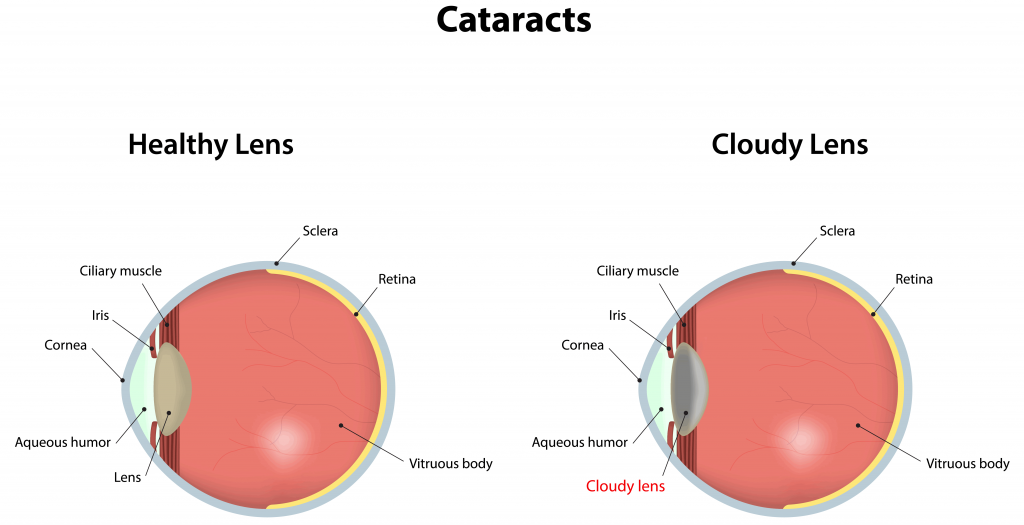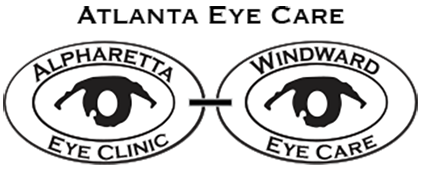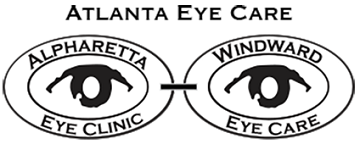Geriatric Eye Care Services
Senior eye care services are provided as an important part of one’s overall health management. With aging comes an increased need for comprehensive eye exams and for high-level, advanced treatment of many common ocular diseases. In addition, more of the global elderly population is enjoying their golden years with an active and healthy lifestyle. Nowadays, there is an unprecedented quality of life for seniors that makes great geriatric eye care even more important than ever.
One of our experienced eye doctors can explain complete ocular evaluations for the aging population. Exams to detect age-related diseases such as macular degeneration, diabetic retinopathy, glaucoma, and cataracts are recommended for patients over 65. Many of these eye diseases progress slowly and don’t generate symptoms until it is too late to prevent a degree of vision loss. Most vision diseases and problems can be addressed and corrected if they are detected. Don’t neglect your vision; make an appointment with Alpharetta Eye Clinic or Windward Eye Care in Alpharetta, GA.
Senior Eye Examination Tests:
 Low vision
Low vision- Cataracts
- Macular degeneration
- Diabetic retinopathy
- Glaucoma
Age-Related Vision Problems
Cataracts
A cataract is a clouding of the eye’s natural lens, which lies behind the iris and the pupil. Cataracts are the most common cause of vision loss in people over age 40 and are the principal cause of blindness in the world. In fact, there are more cases of Cataracts worldwide than there are of Glaucoma, Macular degeneration, and diabetic retinopathy combined, according to Prevent Blindness America (PBA).
The eye’s lens is made mostly of water and protein. In a healthy lens, the protein is normally clear and permits light to pass through. As we age, the protein can clump and begin to cloud a small section of the lens. This is a cataract. Over time, the cataract may grow larger and cloud more of the lens, making it harder to see.

A cataract starts small and, at first, has little effect on the vision. You may notice that your vision is a little blurred, like looking through a cloudy piece of glass or viewing an impressionist painting. In the early stages of cataracts, one sees colors less vibrantly. In the later stages, the lens becomes almost opaque and has to be replaced with a clear, artificial lens. This procedure is called refractive lens exchange.
The type of cataract you have affects which symptoms you experience and how soon they will occur:
- Blurred or cloudy vision
- Colors appear faded or dull
- Lamps such as headlights or streetlights have glare or halos; sunlight may appear too bright
- Poor night vision
- Double or multiple vision in one eye; this effect may disappear as the cataract grows
- Frequent prescription changes in your eyeglasses or contact lenses
Blepharitis
This is an eye disease involving inflammation of the eyelids. Symptoms can include redness, itching, and irritation in one or both eyes. blepharitis is sometimes confused with conjunctivitis. It is also often mistaken for dry eye because of the gritty sensation that accompanies it; however, eyedrops rarely improve the condition. If you are diagnosed with Blepharitis, our doctors will recommend an ongoing eyelid hygiene program. Severe blepharitis may require topical and oral medicine and nutritional supplements containing omega-3 fatty acids.
Flashes and Floaters are common occurrences and usually not a cause for concern. However, they could be a symptom of a more serious eye condition that would need treatment.
- Flashes: Flashes or streaks of light could mean that the jelly-like fluid which fills the eye is shrinking and might be detaching from the inside of the eye or retina. A severe headache sometimes causes flashes, but it is important to have your eyes checked.
- Floaters: Floaters can be specks, spots, threads or even cobwebs when you are looking at a plain light background like a blank wall or the sky. If you try to focus on them they’ll move with your eye. Floaters can occur as part of the aging process and some eye conditions or injuries can cause floaters. Most people find that floaters are temporary but if you lose any peripheral vision, it could be a sign of something which requires treatment and you should consult us immediately.
Fuchs’ Dystrophy
This is a slowly progressing corneal disease that usually affects both eyes, occurring more often in women than in men. Although doctors can often see early signs of Fuchs’ Dystrophy in people in their 30s and 40s, the disease rarely affects vision until people reach their 50s and 60s. The early sign of this condition will be blurry vision on awakening that will gradually clear during the day. As the cornea retains fluids while we sleep it is normally thicker in the morning causing blurred vision. These fluids evaporate once we are awake. As the disease worsens, this swelling will remain constant and blurred vision will continue without clearing. If you suspect you have symptoms of Fuch’s Dystrophy, schedule an eye examination immediately.
Several treatments can be effective:
- Eye drops or ointments to reduce the amount of fluid in your cornea
- Use of a warm hair dryer at arm’s length two or three times a day to evaporate excess fluid in the cornea
- Wearing soft contact lenses to improve vision and reduce discomfort
- Receiving a corneal transplant
Glaucoma
This is a disease that affects the optic nerve and involves loss of vision due to a buildup of pressure inside the eye intraocular pressure. Glaucoma has been nicknamed the “sneak thief of sight” because the loss of vision normally occurs gradually over a long period of time and is often only recognized when the disease is quite advanced. Once lost, this damaged visual field can never be recovered. Worldwide, it is the second leading cause of blindness. Glaucoma affects 1 in 200 people aged fifty and younger, and 1 in 10 over the age of 80. If the condition is detected early enough, it is possible to arrest the development or slow the progression with medical and surgical means.
Glaucoma can be divided roughly into two main categories, “Open-Angle” and “Narrow-Angle”:
- Open-Angle Glaucoma: Open angle, chronic glaucoma tends to progress more slowly and the patient may not notice that they have lost vision until the disease has progressed significantly.
- Narrow-Angle Glaucoma: Closed-angle glaucoma can appear suddenly and is often painful; visual loss can progress quickly but the discomfort often leads patients to seek medical attention before permanent damage occurs.
The most common surgical treatment of glaucoma is a procedure to reduce intra-ocular pressure. Regular eye checkups are essential for the detection and management of glaucoma.
Diabetic Retinopathy
This is damage to the retina caused by diabetes, which can eventually lead to blindness. It is an eye condition which affects up to 80% of patients who have had diabetes for 10 years or more. Research indicates that at least 90% of these cases could be reduced with proper treatment and regular eye exams. Floaters can be a sign of diabetic retinopathy. Sometimes difficulty reading or doing close work can indicate that fluid is collecting in the Macula, the most light-sensitive part of the retina. This fluid build-up is called macular edema. Another sign is double vision. If you experience any of these signs, contact us immediately. Diabetics should see their eye doctor at least once a year for a dilated Eye Examination. High blood sugar can damage blood vessels in the retina, causing them to leak fluid or bleed. This causes the retina to swell and form deposits. In later stages, new blood vessels grow on the surface of the retina causing serious vision problems. Diabetic retinopathy can be treated with laser photocoagulation – using laser surgery to seal leaking blood vessels and remove unwanted tissue. Laser photocoagulation is painless and is performed as an outpatient procedure.
Macular Degeneration
This is a medical condition which usually affects older adults resulting in a loss of vision in the center of the visual field (the Macula) because of damage to the retina. It is a major cause of visual impairment in the elderly. Macular degeneration can make it difficult or impossible to read or recognize faces, although enough peripheral vision remains to allow other activities of daily life. Macular degeneration can be treated with laser coagulation and medication that stops and sometimes reverses the growth of blood vessels.
No matter what your vision-related issues are, it is crucial to have a skilled, caring, and trusted health care provider. If you live in Alpharetta, GA, or the surrounding areas, consider visiting Alpharetta eye Clinic or Windward Eye Care for help with a variety of age-related vision issues. Call us for more information.


